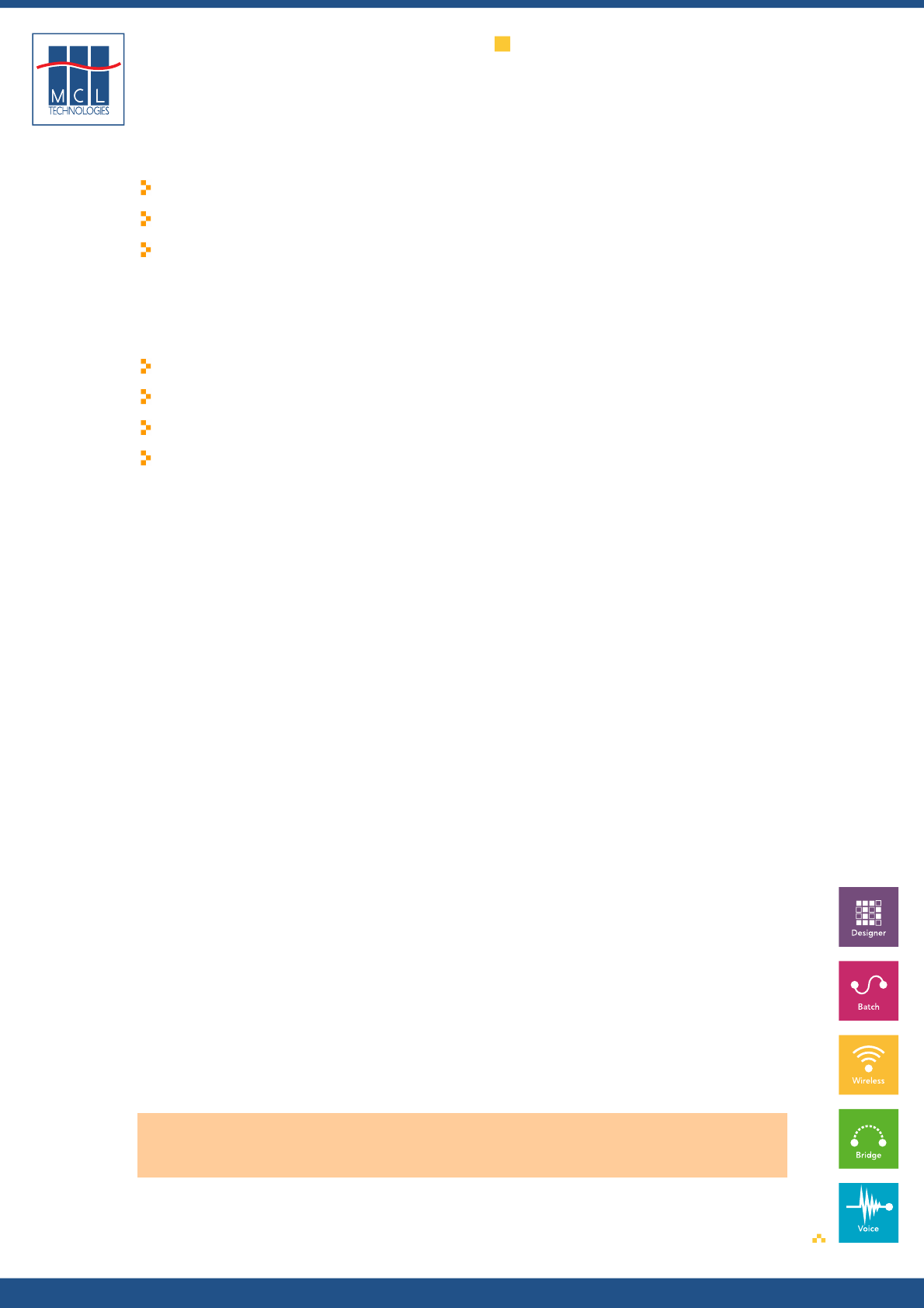
Visualize • Mobilize • Realize MCL-Collection
Copyright © 2005 • MCL Technologies • All Rights Reserved
www.mcl-collection.com
Think about the cost of application ownership to keep an application current with
respect to advances in:
Operating systems as depicted in Chart 1.
Wireless communications as depicted in Chart 2.
Data capture technologies as depicted in Chart 3.
Now consider the effort required to keep an application developed in a low-level ‘C’
like language or VB current with regard to these technological advances. Applications
developed in a ‘C’ like language or VB must be:
Rewritten for each new operating system.
Maintained whenever new system software, such as a driver, is released.
Maintained whenever a wireless infrastructure is upgraded.
Modified whenever a new technology is introduced, such as voice capability or
RFID.
Each time you have to modify your ‘C’ like language, VB, or Java application, your
total cost of application ownership increases.
This is not the case with MCL.
Charts 1, 2 and 3 depict MCL’s timelines for adopting and integrating technological
advances into MCL-Collection. The fact that MCL stays current with the latest
technologies means you do not have to. MCL does it for you.
MCL’s cross-platform compatibility allows you to port your mobile worker
application to a mobile computer running a new operating system without the effort of
rewriting your application.
MCL handles changes to operating systems, system software, and wireless
infrastructure. All you need to do is keep the most current version of MCL-Client on
your mobile computers. MCL-Client transparently provides the necessary updates to
your mobile computing environment.
As shown in Chart 3, MCL is also continually integrating new data capture
technologies into MCL-Collection. For example, MCL has invested two years in the
integration of Vocollect Voice™ (voice recognition and voice synthesis) into MCL-
Collection to provide seamless integration of voice control into your mobile worker
applications. Enabling your mobile worker applications with voice capability using a
‘C’ like language, VB, or Java, would require a considerable time and money
investment in specification, development, test, documentation, and deployment. By
contrast, using MCL, voice enabling your mobile worker applications is achieved
using a few clicks in a dialogue box associated with your MCL objects/data fields.
MCL’s approach has proven itself over the years. MCL remains committed to future-
proofing your mobile workforce applications and minimizing your total cost of
application ownership.
Page 12


















